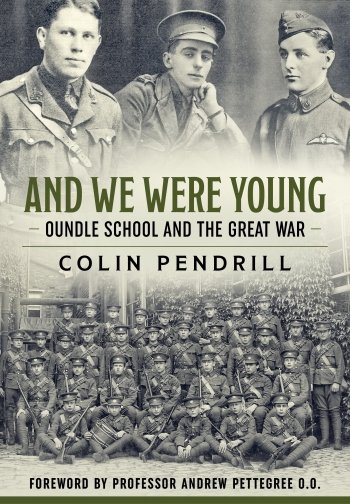-
Załączniki bezpieczeństwa
Załczniki do produktuZałączniki dotyczące bezpieczeństwa produktu zawierają informacje o opakowaniu produktu i mogą dostarczać kluczowych informacji dotyczących bezpieczeństwa konkretnego produktu
-
Informacje o producencie
Informacje o producencieInformacje dotyczące produktu obejmują adres i powiązane dane producenta produktu.HELION
-
Osoba odpowiedzialna w UE
Osoba odpowiedzialna w UEPodmiot gospodarczy z siedzibą w UE zapewniający zgodność produktu z wymaganymi przepisami.
“A boy, he spent his boy’s dear life for England”. These words from a poem of 1916 were written in reaction to the news that a young boy, who had left Oundle School just two years earlier, had shot himself, whilst stranded in the Libyan Desert. With his plane grounded, he took his own life hoping that the meagre supply of water they had left might save the life of his mechanic. The young boy was Stewart Ridley and he was 19 years old. The poet who wrote about him was John Drinkwater. 'And We Were Young' tells the stories of 263 young men from Oundle School and Laxton Grammar School who lost their lives in the Great War. And they were young. The average age at death was just 23 and the youngest, John Savage, shot down by the German air ace Max Immelmann, was just 17. They died across the globe, on land, at sea and in the air. Most of course on the Western Front but others in British as well as Portuguese East Africa; Gaza and Gallipoli, Italy and India, Mesopotamia and Macedonia, Jutland and Coronel and one in the Russian Civil War, long after the Armistice. The vast majority of them were volunteers not professional soldiers. The book celebrates their individual stories, their brief lives where school and school friends were so central and their deaths brought about by war. It also contextualises and analyses the battles in which they fought. In addition, 'And We Were Young' tells of the impact of the War on the two ‘twinned’ schools in Oundle. With its wide curriculum and innovative well-equipped and probably unique engineering workshops, the boys of the Oundle School were able to contribute directly to the war effort by making vital parts for the War Office. They also ‘dug for victory’ and continued their pioneering work in agricultural research and they trained for war in the school’s OTC. Guided by their great, reforming headmaster, Frederick Sanderson, Oundle boys also gave up their holidays and extended their working hours to meet the challenges posed by the great conflict.








